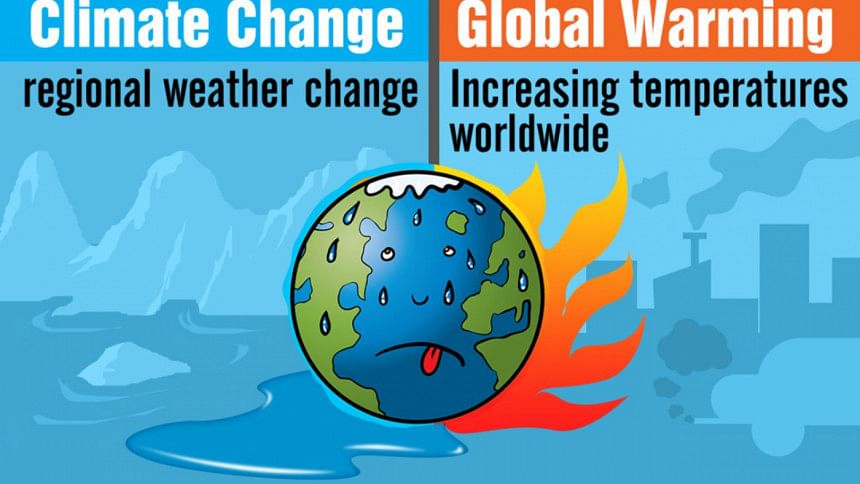Explaining buzzwords related to climate change

There are multiple controversies which suggest that climate change is simply a myth but there is an insurmountable amount of evidence that prove otherwise. To truly appreciate the effects of climate change on the living creatures and the Earth itself, it is important to first understand the words that scientists use to explain this phenomenon.
WEATHER VS CLIMATE
Scientists make it a point to carefully illustrate the difference between these two terms. The main difference between the two is temporal. Weather is the condition of the atmosphere of a particular area over a relatively short period of time whereas the climate of the area is the record of the atmosphere for over 30 years or so. So, even if it is freezing during winter, it does not necessarily mean that the climate has remained the same and that global warming is a myth.
GLOBAL WARMING VS CLIMATE CHANGE
A recent study conducted in Greenland by a group of scientists showed that various areas of the country was getting colder. Global warming pessimists would love to jump to the conclusion that the Earth is not getting warmer. However, that is untrue and this where the distinction between global warming and climate change comes into play. While global warming is a way of simply saying that the average global temperature is rising, climate change takes into account other factors such as the melting of glaciers, frequent droughts, change in the time that trees flower, and so on. As such, global warming is just another result of anthropogenic climate change.
RENEWABLE ENERGY
Renewable energy is the form of energy that is collected from sources such as sunlight, wind, rain, tides, geothermal heat, and so on. They are called renewable resources because they are replenished fairly quickly and during a person's lifetime.
GREEN AUDIT
While green audit is not something that is very common in Bangladesh, it is quite common in countries like the United States and Canada. This is a process by which businesses or corporations are evaluated on the basis of their impact on the environment. It is used to determine whether the products that companies are selling and the method of production they are employing are both environmentally friendly. Consumers are, thus, given a choice on whether or not they want to support companies that are harming the environment, for instance.
CARBON FOOTPRINT
Carbon dioxide is the largest contributor of greenhouse gases that cause global warming. Almost all forms of human activities result in the emission of carbon dioxide. Carbon footprint, therefore, is the term used to express the sum of all carbon dioxide emission by a person or a firm. It is usually measured in tons depending upon the amount of fuel used by the individual and is calculated for the time period of a year.
PPM
The meaning of PPM is "parts per million" and is a way in which scientists express the concentration of a substance in soil or water. We can measure how much pollutant there is in the atmosphere that can lead to climate change or global warming. For example, the safe level of carbon dioxide in atmosphere is supposed to be 350 ppm but the concentration is 400 ppm at the moment and still rising every year.

 For all latest news, follow The Daily Star's Google News channel.
For all latest news, follow The Daily Star's Google News channel. 



Comments